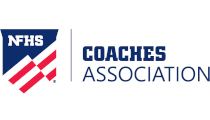Full disclosure about the following article: I am severely biased. I am the son of a coach, which is to say that my dad is a coach. Like most young kids, I was going to be all kinds of things when I grew up, but when I was old enough to know better, I wanted to be a teacher and a coach. More specifically, I wanted to be my dad. My dad taught math, and while I knew I wasn’t a math guy, I also saw my dad teach football, basketball, baseball and track. Because I did – and still do – idolize my dad, I was also going to teach football and basketball like him (and later in life learned that I really loved teaching baseball).
Here’s where my bias comes in. Coaches – correction, good coaches – are amazing people. My tournament staff and I recently hosted one of the basketball state tournaments, so I had the opportunity to see several coaches in action, up close and personal. I heard and saw a lot of what everyone hears and sees: basic basketball instruction. There were plenty of reminders to close out with your hand up, slide across the lane on help-side defense, stay on your feet, use two hands on rebounds, go here or there, run this play or that, and all of the related stuff that John Q. Public believes coaches get paid to do. Because this was a state tournament, I can honestly say that every coach was fully engaged in these aspects of coaching. Some coaches did their instructing while sitting on the bench, some while standing, others while pacing, but every head coach in the tourney was actively coaching skills and schemes throughout their games.
However, I also had the chance to see a lot of other actions throughout the weekend. I saw coaches telling kids to look them in the eye. I saw coaches telling kids to fold their shooting shirts and place them on the chair as they’d been taught. I saw coaches sternly addressing athletes after throwing water cups or slapping chairs. I saw coaches reminding kids to tie their shoes, or pull up their shorts or tuck in their shirts. I saw coaches reminding kids to take off their hats inside. I saw coaches walking in front of their kids thanking every tourney worker they came across. I saw coaches joking with kids who were upset to get a smile out of them. I heard coaches telling their athletes to go give their moms some hugs. I saw coaches in coats and ties, polos and khakis, or school sweaters. I saw coaches going out of their way to say hello to people, and on and on and on.
I also saw some coaches “working the officials” for every little call. I saw coaches stomping around when something didn’t go their way. I saw coaches walking around the venue in sweats and baseball caps. I saw coaches quietly walking through the handshake line without making eye contact with the opposing players and coaches. I heard coaches complaining to parents/fans/players about various officials or opponents. I heard a coaching staff who thought they were alone (they weren’t) loudly and aggressively cursing about their team’s performance, and on and on and on.
One of the wonderful things about coaching is that you’re working with a group of kids who have chosen to be with you. As a former English/Language Arts teacher, I had PLENTY of students in the classroom who would have rather been anywhere else, but as a coach, they had all – for one reason or another – chosen to be on that team. Because of that, I try to remind my coaches to teach their kids the things that actually need to be taught. I didn’t realize this until later in life, but I learned much more than X’s and O’s from all of my coaches, beginning with my dad.
Dad taught me basic game skills like how to shoot a basketball or throw a baseball, and as I grew older he also taught me more advanced skills like getting two feet in the paint on help-side defense or combo blocking to a linebacker. But those aren’t life skills. Dad also taught me how to work hard for goals, to quit whining about little things, to shake hands when meeting someone, to respect every individual’s role, to fix what needs to be fixed, to move on after setbacks, and so very much more. While I learned the most from my dad, I have been blessed enough to have many influential coaches in my life. I learned to be passionate about my goals from a set of my football coaches. I learned patience, empathy and a great deal of character from my basketball coach. I learned organization, communication and how to be approachable from my baseball coach, and the list continues.
So I ask the coaches in my athletic department all the time – what do you want to teach your athletes? If all we care about are plays, schemes and strategies, we’ve given the majority of our kids nothing useful for life. In athletics, we are surrounded by willing students who have voluntarily come to us to learn something, so it’s our job to be careful about what it is we’re teaching them. What skills and what lessons will you want these kids to have years down the road?
Despite the many positive examples that I had growing up, as a young coach, it still took me a while to figure this idea out: skills, schemes and strategies can be taught many, many different ways. It’s on our shoulders to be the type of person that we want our athletes to eventually be. As a coach, if all of your athletes acted the same way you act during practices and games, would you be proud of the result? High school athletes can’t compartmentalize a coach’s actions into athletics and non-athletics; they are learning during every second they are with a coach.
Knowing full well that the majority of our athletes will not play organized competitive athletics once we’re done with them, I return to one basic question for coaches: What did your athletes learn this year? When athletes look back at their time with you, were you worth copying?
Mark Rerick
Mark Rerick, CMAA, has been an athletic director since 2006. After spending time splitting duties at other schools as a teacher, coach and principal, he has been the full-time athletic director for the Grand Forks (North Dakota) Public Schools since 2012. This article was adapted from his blog, High School Sports Stuff, which can be found at http://highschoolsportsstuff.areavoices.com/.
Most Recent Articles
- nfhs news NFHS Learning Center Delivers 25 Millionth Course
- Track & Field/Cross Country article Effective Communication with Athletes and Coaches
- nfhs news Player Equipment Changes Highlight 2025 High School Football Rules Revisions
- Player Equipment Changes Highlight 2025 High School Football Rules Revisions
- nfhs news Judgment Call on Second Contact Eliminated in High School Volleyball






